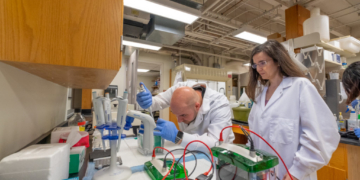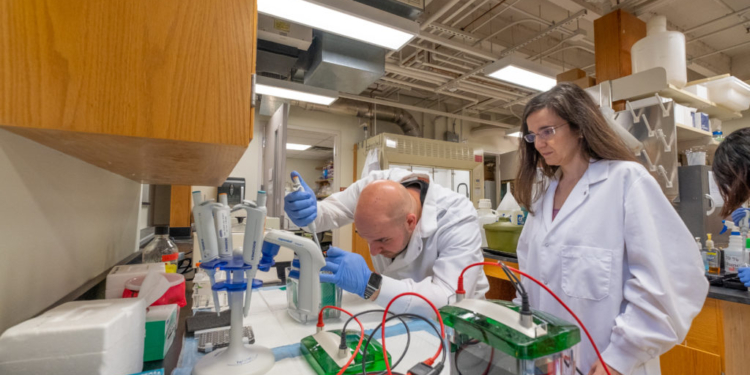Michigan State University is one of the top 10 agriculture colleges worldwide, according to the Quacquarelli Symonds (QS) World University Ranking by Subject report released in March.
QS, an education marketing and networking company based in the United Kingdom, ranked more than 300 universities, covering 51 disciplines. MSU was judged in the “Agriculture & Forestry” category, which has been a part of the report for nine years. MSU is up from No. 11 last year.
“It’s a privilege to be ranked among the best in the world with respect to agriculture, and it speaks to the hard work of the MSU faculty, students and staff,” said Ron Hendrick, dean of the MSU College of Agriculture and Natural Resources (CANR). “Our institution was founded on the mission of teaching, research and outreach, and a significant portion of that has focused on relevant agriculture topics such as food, health and the environment.”
The QS report evaluates schools on the basis of academic standing, employer reputation and research impact.
Surveys conducted with faculty and employers are used to gauge international reputation. Research impact is determined by reviewing the number of citations per paper and h-indexes, which measure a scientist’s influence by factoring in the total amount of published research and corresponding citations. This information is found in Elsevier’s Scopus, a research citation database.
The majority of MSU’s agriculture-related research, teaching and outreach is conducted by CANR, MSU AgBioResearch and MSU Extension.
Boasting 12 academic departments and 20 undergraduate majors, CANR had more than 4,300 students enrolled in undergraduate, graduate and two-year certificate programs in fall 2020.
MSU AgBioResearch supports more than 340 research faculty in eight MSU colleges, including CANR, Natural Science, Engineering, Veterinary Medicine, Social Science, Communication Arts and Sciences, Arts and Letters, and Osteopathic Medicine. MSU AgBioResearch scientists also work closely with plant, animal and natural resources organizations in Michigan and beyond.
“Partnerships with these industry organizations are essential to developing solutions to some of the most urgent issues facing growers and producers,” said Doug Buhler, director of MSU AgBioResearch and assistant vice president of research and innovation.
MSU Extension has a presence in all 83 Michigan counties and provides outreach programming on topics from agriculture and business to nutrition and natural resources.































